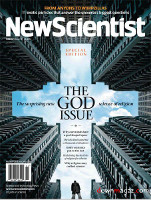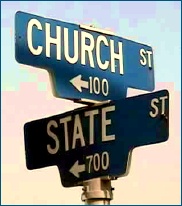









I like Ed Feser. I discovered fairly recently that he has written a number of pieces on the topic of my current PhD research, namely religious convictions in public life.
One issue that I’m writing on at the moment is the following claim: We should only advocate policies in public that rest entirely on assumptions and convictions that can be defended in such a way that we could reasonably expect that our fellow citizen should take those assumptions and convictions seriously, and if we cannot defend those assumptions and convictions, then we should not support those policies. Therefore, we should not advocate any policies that depend on religious beliefs.
That’s it, premise and conclusion. I could comment on the premise, but that would be a different subject altogether for now. I want to ask, is there anything missing from the above argument? Well yes, there’s a second premise which is apparently so obvious that it doesn’t even need to be stated, let alone defended. here it is: “no religious assumptions and convictions are such that they could be defended in such a way that we could reasonably expect that our fellow citizen should take those assumptions and convictions seriously.”
So there you have it, religious citizens. In order to be good citizens, a number of left leaning liberals tell us (e.g. Rawls, Gaus, Macedo, and to an extent Robert Audi) , you just have to accept that your religious beliefs are indefensible.
When writing a PhD, I have a tendency to not be too scathing if I can help it. Thankfully I get to quote people like Ed Feser, who do not have such tendencies.
The problem, in the view of many liberals, is that religious considerations are matters of faith, where “faith” connotes in their minds a kind of groundless commitment, a will to believe that for which there is no objective evidence. Opinions on matters of public policy, they would say, can only appropriately be arrived at via methods of argument assessable by all members of the political community, not by reference to the idiosyncratic and subjective feelings of a minority. If religious arguments were in general really like this, then I would agree with the liberal that they ought to be kept out of the public square. But in fact this liberal depiction of religion is a ludicrous caricature, and manifests just the sort of ignorance and bigotry of which liberals frequently accuse others.




 When I was at the University of Canterbury in July I gave two talks. Episode 29 was one of those talks, on abortion. This talk was actually based on the same material that served as the basis for episode 3, so there will be obvious similarities.
When I was at the University of Canterbury in July I gave two talks. Episode 29 was one of those talks, on abortion. This talk was actually based on the same material that served as the basis for episode 3, so there will be obvious similarities.